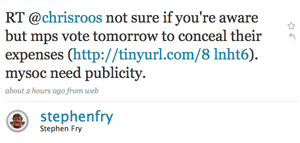Speaking in the House of Lords on Tuesday, Lord Black of Brentwood, who is also executive director of the Telegraph Media Group, raised his concerns about Clause 13 of an education bill, which would introduce reporting restrictions on alleged teacher misconduct.
Addressing the House Lord Black said he feared he would be “a lone voice” in raising what he felt were “serious repercussions for freedom of expression and the rights of children”.
First, it is unprecedented because it gives to a particular group of professionals a right that no one else enjoys. Yes, it is appalling if a teacher is falsely accused of a crime-and I take to heart the comments of my noble friend Lady Perry – but that happens in other careers involving children, too. If this reaches the statute book, who really believes that the move towards greater secrecy in the justice system will stop there? We had a glimpse of that in the speech of the noble Baroness, Lady Jones of Whitchurch. The GMC has already started a campaign arguing that doctors called before its disciplinary committee to answer charges of abusing a patient should not be identified. Interfering with the media’s ability to report in this way is therefore profoundly dangerous-the thin end of a wedge that will lead inexorably to much wider reporting restrictions that will undermine the long-held principle that, for justice to be effective, it must be open and transparent.
Those principles exist for good reason because not all criminal misconduct is prosecuted. Teachers accused rightly of assaults might never be charged by the police due to lack of evidence or because of failure to take a whistleblower seriously. A teacher might be dismissed from a school and, for whatever reason, the school and those involved want no publicity. Allowing him or her indefinite anonymity has frightening implications for the welfare of children. As I understand it, it would also be an offence to name a teacher accused of a crime even if he or she were identified at an inquest or in a civil court action. The media or a parent would have to apply to another court to lift the reporting restrictions, as would anyone who wanted to publish the findings of an official inquiry. In an open society, that cannot be right.
He closed by urging the Government “to think again”, and if they press ahead to amend the current bill to include the provision of a public interest defence and the exemption of courts and other statutory bodies from the automatic restrictions.
Hatip: The Newspaper Society
